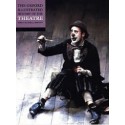Check items to add to the cart or select all
The sheets will demonstrate how students need to compare these old performance traditions with any modern day theatrical changes. It is a perfect booklet to help students compare a play's original performance conditions with the contemporary ideas they may have watched.
The booklet will help students to look at the period from a variety of perspectives: theatre design, acting, stage spaces and the audience/spectator relationships. It contains numerous facts, articles and explanations about theatrical development during 1828-1914. It covers topics such as:
Major contextual events of the period.
Melodrama in the 1830s.
Victorian theatres, their architecture, staging, class systems, design aspects.
Victorian acting styles and approaches.
How Victorian theatres attracted audiences and major theatrical developments within this period such as the advance of electric.
How Victorian theatres differ from today's theatres.
Victorian beliefs and ideas and how these would have affected drama.
The role of the actor-manager in Victorian theatres, specifically the work of Henry Irving and his influences on the theatrical world.
The rise of realism and naturalism and the theatrical changes and approaches brought about by these movements.
Stanislavski and naturalism in the 1900s.
The start of modern theatre, looking at the practitioners (such as Richard Wagner, Meyerhold, Appia and Craig) who had a lasting effect on theatre development.
Anti-realism, expressionism and symbolism.
The booklet will help students to look at the period from a variety of perspectives: theatre design, acting, stage spaces and the audience/spectator relationships. It contains numerous facts, articles and explanations about theatrical development during 1828-1914. It covers topics such as:
Major contextual events of the period.
Melodrama in the 1830s.
Victorian theatres, their architecture, staging, class systems, design aspects.
Victorian acting styles and approaches.
How Victorian theatres attracted audiences and major theatrical developments within this period such as the advance of electric.
How Victorian theatres differ from today's theatres.
Victorian beliefs and ideas and how these would have affected drama.
The role of the actor-manager in Victorian theatres, specifically the work of Henry Irving and his influences on the theatrical world.
The rise of realism and naturalism and the theatrical changes and approaches brought about by these movements.
Stanislavski and naturalism in the 1900s.
The start of modern theatre, looking at the practitioners (such as Richard Wagner, Meyerhold, Appia and Craig) who had a lasting effect on theatre development.
Anti-realism, expressionism and symbolism.
You may also be interested in the following product(s)
The Oxford Illustrated History of Theatre
£18.99
|







